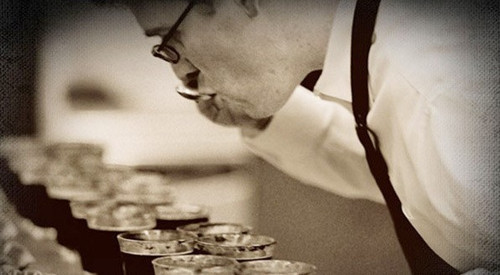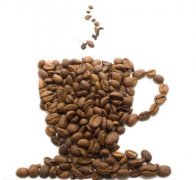Muscat does not continue coffee, please shake the cup.

Muscat, the capital of Oman, has a history of 900 years, but it is a smaller city. In addition to relying on the Gulf of Oman, the Arabian Sea and the Indian Ocean, Malaysia is also built on mountains. The three major urban areas of the horse city are scattered in the valleys.
City: small house with the palace, the old city, the new city, across the mountain pass
Muscat is an ancient medieval port city. Muscat has had many names in history. Oman is a country famous for producing spice crops such as roses and jasmine. Muscat has always been the place to distribute these spices, so it was originally called "Miska", which means "the land of spices".
Later, it was called "Muscatu", which means "inflated skin". At the beginning of this century, Omani historians wrote it as "Muscard", meaning "a piece of leather". After that, "Muscat" gradually evolved into "Muscat", which means "the place where things fall" in Arabic, and some people interpret Muscat as "the tomb of saints".
The easternmost district of Maskha is an ancient city, from which the city first developed, with magnificent palaces, traditional Arab houses in the depths of narrow streets and alleys, and two ancient gates and a section of walls. The ancient city faces the sea, the mountains are steep and colorful, reflecting with the sea, it is magnificent.
In 1508, Portuguese colonists occupied Muscat and ruled until 1650. During this period, large-scale castles of Mirani and Yorelli were built on the nearby mountains, hence the name of Muscat. Reed District, which is a mountain pass from the old city, is a commercial center, with row upon row of high-rise buildings and large shopping malls, which is the most prosperous area in Muscat.
Churmei District is close to the bay, the beach is wide and quiet, many hills on the seaside, covered with green tiles and red walls of the cottage, is a famous tourist area. Miting Ai Cabo West is a foreign embassy and residential area, and foreign embassies in this country are neatly arranged in a patch of green trees.
Language: language reverses words written from right to left
When we first arrived in Muscat, we hired two drivers, both indigenous, who looked darker and more African, but they insisted they were locals. The first young man, let us familiar with the route we are more concerned about, take us to the central bank, the government and the place where the mobile phone SIM card is handled.
The young man looks very kind, as if he is not good at words, and belongs to the relatively simple type. When he was asked how old he was, he didn't understand. Later, when he talked about "AGE", he finally realized that he was asking about age. He said, "FOUR TWENTY." I wonder, obviously he is a very young man, how did he suddenly become 420 or 42? I said it was TWENTY FOUR, but he said yes, smiling straight at me. I was very embarrassed.
Later, I suddenly remembered that Arabic was written from right to left, and the young man reversed the order of English, so 24 was read as 42.
Custom: coffee with spices, please shake the cup.
The Omani call coffee "Kahwa". They like to add spices such as cardamom to their coffee. As a result, the coffee here is thick black and contains a bitter taste similar to traditional Chinese medicine, which is different from western coffee.
Soon after we arrived in Muscat, we were invited by the Omani. After a big cake barbecue, the heart is more than enough, but the belly is weak. Unfortunately, the Omani still have the custom of inviting guests to have coffee at the end of their hospitality. If the guest does not drink, it will usually cause the host to misunderstand what you think of his hospitality.
After receiving the hot coffee in the host's repeated exhortations, although he looked embarrassed, he had to drink it reluctantly. When he finally finished the cup, the waiter standing by with the kettle said that it was too late to pour another cup. "that's enough, thank you!" We hastened to stop it, but the waiter looked at us questioningly and asked, "that's enough?" are you sure you don't want it? " Seeing us nodding heavily, the waiter asked, "then why don't you shake the cup?"shake the cup?" We have no idea.
Important Notice :
前街咖啡 FrontStreet Coffee has moved to new addredd:
FrontStreet Coffee Address: 315,Donghua East Road,GuangZhou
Tel:020 38364473
- Prev

The origin of Greek coffee divination
Coffee divination, also known as "Greek coffee divination," or "Turkish coffee divination," was once ruled by the Ottoman Turkish Empire, and this coffee was still popular. However, due to the continuous dispute between Turkey and Greek territory before, if you go to Greece, don't say you want a cup of Turkish coffee, otherwise you will get two white eyes! Greece
- Next

The sour, mellow and bitter taste of coffee is caused by complex chemical changes in roasting.
The color, aroma and taste of coffee are caused by some complex chemical changes that take place during the baking process. So raw coffee beans must go through a proper chemical process to achieve the most balanced state of its essential ingredients in order to be regarded as the best baked beans. The aroma of coffee will change with the heat, so the baking time should be shortened as much as possible, and the heat should be controlled within the range of heat.
Related
- Beginners will see the "Coffee pull flower" guide!
- What is the difference between ice blog purified milk and ordinary milk coffee?
- Why is the Philippines the largest producer of crops in Liberia?
- For coffee extraction, should the fine powder be retained?
- How does extracted espresso fill pressed powder? How much strength does it take to press the powder?
- How to make jasmine cold extract coffee? Is the jasmine + latte good?
- Will this little toy really make the coffee taste better? How does Lily Drip affect coffee extraction?
- Will the action of slapping the filter cup also affect coffee extraction?
- What's the difference between powder-to-water ratio and powder-to-liquid ratio?
- What is the Ethiopian local species? What does it have to do with Heirloom native species?

